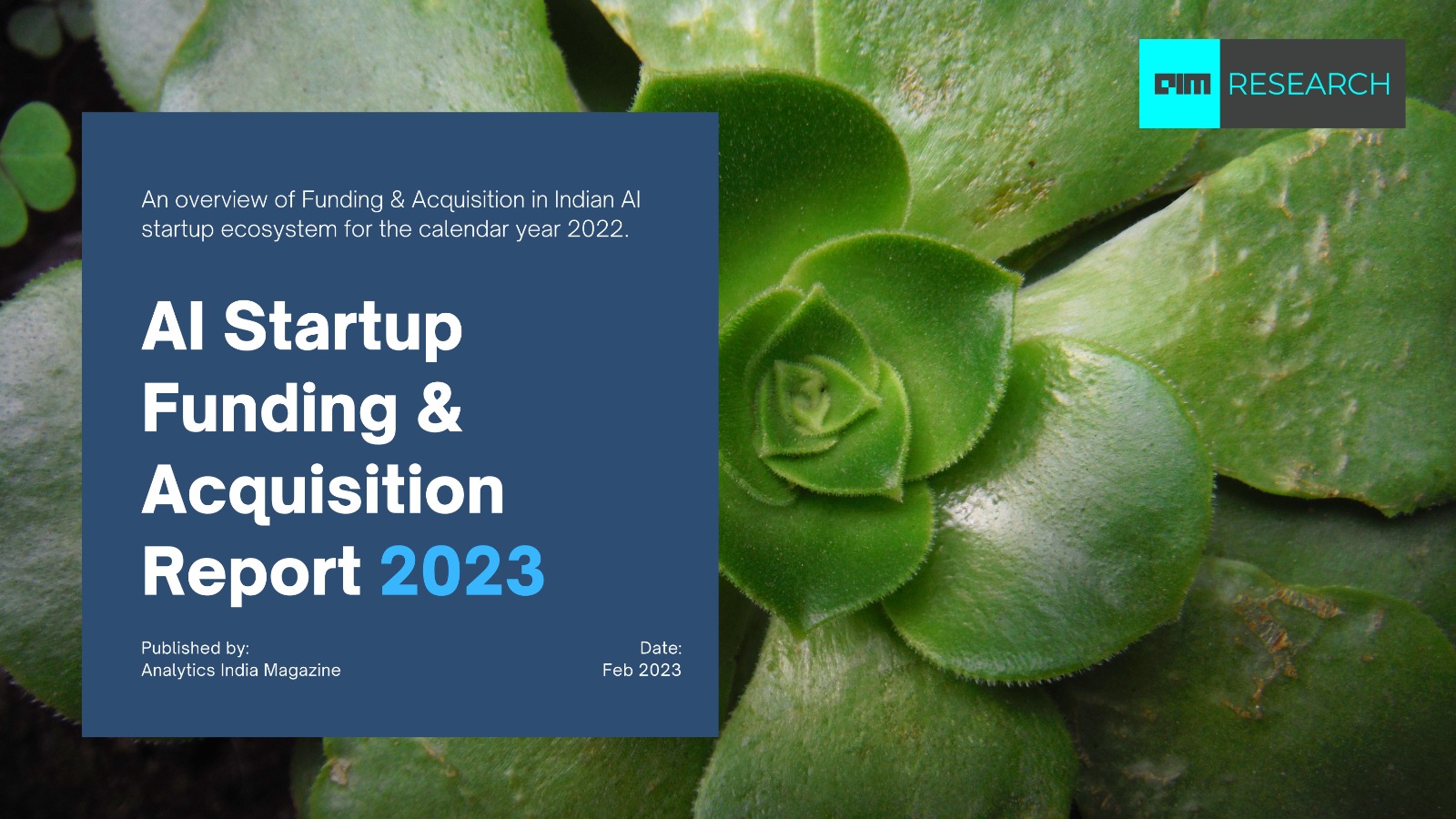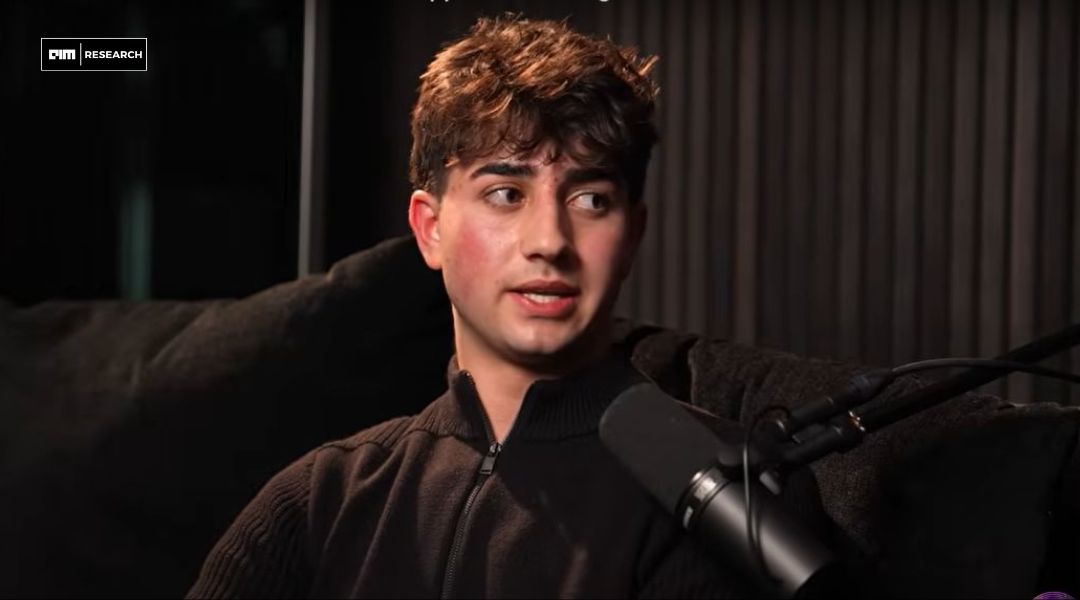
In the Age of AI, Anyone Can Build a Million-Dollar App With No Degree
- By Anshika Mathews
- Published on
This was a space waiting to be taken, and Cal AI became the disruptor.


When you ask any programmer if they need a degree to be able to code, most of them feel that an AI can teach you to do it. The same was said by Zach Yadegiri, the minor founder of a Multi Million Dollar App.
I love youtube.
— Zach Yadegari (@zach_yadegari) March 10, 2025
It holds masterclasses on music composition, startups, filmmaking, programming, any all other fields.
And all free.
At just 18 years old, Zach Yadegari and Henry Langmack aren’t your typical high school seniors. While their peers worry about prom and college applications, these two are running one of the fastest-growing consumer AI apps on the market: Cal AI. Since its launch in May 2024, Cal AI has been downloaded over 5 million times, generated $2 million in revenue in a single month, and boasts a 4.8-star rating across both the Apple App Store and Google Play.
The app’s premise is simple which is take a picture of your meal, and Cal AI will automatically estimate its calories and macronutrients. The concept isn’t entirely new. MyFitnessPal and other competitors have dabbled in similar features but Cal AI’s strength lies in its foundation. Apps like MyFitnessPal required users to input each meal, scan barcodes, or select from preloaded databases an approach that, while functional, often led to frustration and abandonment.
But Cal AI is built in the era of large image models, it integrates Anthropic and OpenAI models with retrieval-augmented generation (RAG) to refine its accuracy, trained on open-source databases from sites like GitHub.
The founders tackled a variety of technical hurdles, from recognizing ingredients in mixed dishes to deciphering packaged food labels. Studies show that fewer than 30% of users continue logging their meals after a month. One possible reason? The cognitive load required to maintain consistency.
Yadegari’s journey didn’t start with AI-powered calorie tracking. His entrepreneurial streak began at just 7 years old when he took his first programming class. By 12, he was publishing games on the App Store. At 13, he launched an unblocked gaming website, Totally Science, designed to bypass school internet filters.
“Generally, if you look up anything like games.com or any online gaming website, it automatically gets blocked. My website would bypass everything,” Yadegari explained.
The clever branding trick naming it ‘Totally Science’ to avoid school restrictions paid off. At its peak, the site generated $660,000 a year. Eventually, Yadegari sold it for $100,000 to FreezeNova at 16 years old.
That sale was a turning point. He had watched another young founder build a promising app in high school only to see it stagnate. The lesson?
“I realized I had to ‘burn the boats’ and move on.”
After selling Totally Science, Yadegari and Langmack experimented with mobile apps. One early attempt, GrindClock, featured motivational speakers like David Goggins screaming at users to wake up and start their day. It garnered 20,000 downloads in a few weeks, but growth wasn’t sustainable.
Determined to build something bigger, Yadegari reached out to seasoned app developer Blake Anderson via X (formerly Twitter). Anderson, known for viral ChatGPT-powered apps like RizzGPT, eventually joined as a co-founder.
With AI tech improving rapidly, the team saw an opportunity.
“We just pieced two and two together and knew Cal AI was a great idea to build.”
They moved to San Francisco, lived in a hacker house, and built their prototype. But the experience led to an unexpected realization for Yadegari—he actually wanted to go to college.
“We were surrounded by people in their late 20s or 30s all day. And I realized that if I didn’t go to college, this is what life would be like.”
Cal AI’s growth strategy relies heavily on influencer marketing. Yadegari himself personally DM’d thousands of influencers, refining an outreach strategy that boiled down to sheer numbers.
“One in 100 influencers replies. Then, out of 500 DMs, maybe two decent influencers respond. You have to DM a lot.”
Their approach wasn’t just about volume, it was strategic. By offering upfront payments for multiple videos, they lowered per-video costs significantly. And because Cal AI’s premise is inherently viral, influencers barely needed to sell it.
“Just showing it in a video, everyone’s like, ‘Whoa, I want that.’ It’s pretty simple at the end of the day.”
The company has since expanded into paid advertising, using influencer content as ad creatives. Apple Search Ads have also been a key driver of growth, particularly when targeting competitors’ keywords.
Calorie-tracking apps notoriously struggle with user retention. Industry benchmarks suggest that less than 30% of users stick around after a month.
“Although I cannot state our exact retention publicly, Cal AI’s retention fits in the range the article suggests, and so do in-person gyms,” Yadegari shared. “This is why yearly pricing plans are heavily pushed onto customers in this category. My hypothesis is that there is always going to be heavy churn with health and fitness products because they require real discipline.”
But while the company has skyrocketed in revenue, Yadegari is facing a personal crossroads. Does he double down on Cal AI or pursue college?
“Right now, my plan is to take a gap year after senior year to completely focus on Cal AI and build it to the biggest scale possible.”
The team’s roadmap includes refining AI accuracy beyond 90%, expanding their user base beyond the current 15–25 demographic, developing an influencer marketing platform to scale ad strategies, and launching a ‘view generation platform’ to boost visibility for other products.
While MyFitnessPal and other incumbents have dominated the market for years, Cal AI has positioned itself as the modern, AI-driven alternative.
“The truth is, these apps have stagnated for years. No one wanted to innovate. This was a space waiting to be taken, and Cal AI became the disruptor,” Yadegari said. “We are the fastest-growing health and fitness app on the App Store.”
At 17 I scaled Cal AI to $1 mil MRR.
— Zach Yadegari (@zach_yadegari) November 18, 2024
At 14 I built a gaming website then later sold it for $100k.
At 12 I put my first app on the App Store.
At 7 I started coding.
I’m coming to NYC on Wednesday to tell my story:https://t.co/1ph948dSsc
So if you are a 7 year old, you can surely start coding and maybe be the next millionaire.
📣 Want to advertise in AIM Research? Book here >
Cypher 2024
21-22 Nov 2024, Santa Clara Convention Center, CA
A Vendor Briefing is a research tool for our industry analysts, and an opportunity for a vendor to present its products, services and business strategies to analysts who cover the vendor specifically or a related technology or market.
AIM Research encourages technology vendors and agencies to brief our team for PeMa Quadrants, when introducing a new product, changing a business model, or forming a partnership, merger, or acquisition.


